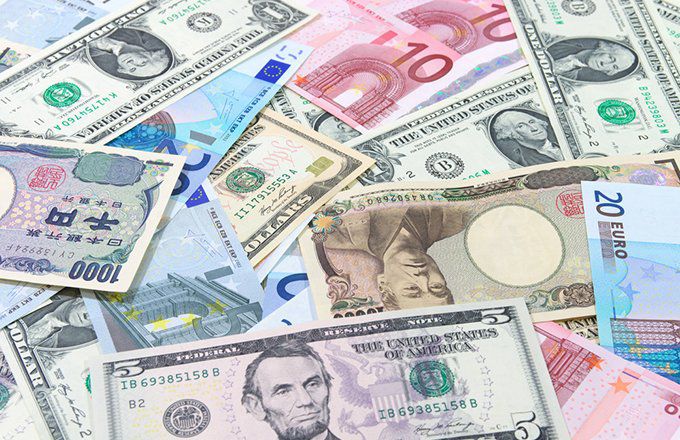
Foreign currency exchanges (forex) run constantly across the globe through over-the-counter markets. The boundaryless space allows seamless access. For example, an Australian trader can trade in euros and Japanese yen (EURJPY) through a U.S.-based broker despite geographical boundaries.
Speculative trading in the retail forex market continues to grow. As a result, there can be intermediaries (banks or brokers) who engage in financial irregularities, scams, exorbitant charges, hidden fees, and high-risk exposure offered through high-leverage levels or other bad practices.
Internet and mobile app-based trading allow smooth trading processes, but they also add the risk of unrecognized sites that may close unexpectedly and abscond with investors’ money. Regulations ensure such practices are avoided. Regulations are aimed at protecting individual investors and ensuring fair operations to safeguard clients’ interests.
The most important criteria when selecting a forex broker are the regulatory approval status of the broker and its governing authority.
How U.S. Authorities Regulate Forex Brokerage Accounts
The National Futures Association (NFA) is the “premier independent provider of efficient and innovative regulatory programs that safeguard the integrity of the derivatives markets” (including forex). The scope of NFA activities is as follows:
- To provide necessary licenses (after due diligence) to eligible forex brokers to conduct forex trading business
- To enforce required adherence to necessary capital requirements
- To combat fraud
- To enforce detailed record-keeping and reporting requirements regarding all transactions and related business activities
A detailed regulatory guide is available on the official NFA website.
Key Provisions of U.S. Regulations
Customers defined as “individuals with assets of less than $10 million and most small businesses,” underscoring that these regulations are meant to protect the small investor. High-net-worth individuals may not be covered under standard regulated forex brokerage accounts. Below are several further provisions:
- The available leverage is limited to 50:1 (or a deposit requirement of only 2% on the notional value of a forex transaction) on the major currencies so that uneducated investors do not take unprecedented risks. Major currencies are defined as the U.S. dollar, the British pound, the Swiss franc, the Canadian dollar, the Japanese yen, the euro, the Australian dollar, the New Zealand dollar, the Swedish krona, the Norwegian krone, and the Danish krone.
- The available leverage is limited to 20:1 (or 5% of the notional transaction value) on minor currencies.
- For short forex options, the notional transaction value amount plus the option premium received should be maintained as a security deposit.
- For long forex options, the entire option premium is required as security.
- The first-in-first-out (FIFO) rule prevents holding simultaneous positions in the same forex asset, that is, any existing trade position (buy/sell) in a particular currency pair will be squared off for the opposite position (sell/buy) in the same currency pair. This also implies no possibility of hedging while trading forex.
Notably, money owed by the forex broker to the customers should be held only at one or more qualifying institutions in the United States or in money-center countries.
How U.S. Regulations Differ
Care should be taken to verify the ownership, status, and location of each forex trading firm, website, or app before signing up for a trading account. There are many websites claiming low brokerage charges and high leverage (allowing more trading exposure with less capital); some as high as 1000:1.
However, almost all sites are hosted and operated from outside the United States and may not be approved by the concerned authority in the host country. Even those authorized locally may not have regulations that apply to U.S. residents. Regulations on offered leverage, required deposits, reporting requirements, and investor protections will vary by country.
Foreign Regulatory Bodies
Here is a list of forex brokerage regulators for a few select countries:
- Australia: Australian Securities and Investments Commission (ASIC)
- Cyprus: Cyprus Securities and Exchange Commission (CySEC)
- Russia: Federal Financial Markets Service (FFMS)
- South Africa: Financial Sector Conduct Authority (FSCA)
- Switzerland: Swiss Federal Banking Commission (SFBC)
- United Kingdom: Financial Services Authority (FSA)
Verifying a Broker’s Regulatory Status
The NFA provides an online verification system called Background Affiliation Status Information Center (BASIC) where the status of U.S.-based forex brokerage firms can be verified using their NFA ID, firm name, individual name, or pool name. Care should be taken to use the correct name/ID in the correct form as many forex broker firms are known by different names (e.g., a website name may be different from the legal corporate name).
The Bottom Line
Financial regulations are complex and often change as markets develop. They also attempt to strike a balance. Too little regulation may lead to ineffective investor protection, while too much regulation can result in reduced global competitiveness and dampen economic activity.


